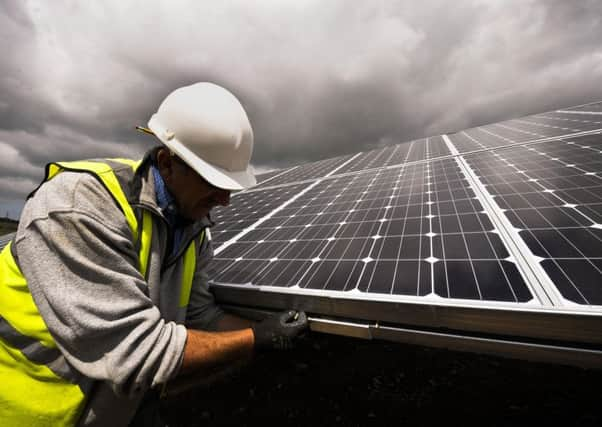New energy policy is crucial says Fylde coast-based FSB


FSB’s latest report, The Price of Power: Energising small business in the next UK Carbon Plan, shows how with improved incentives and fewer barriers, small firms can be key to closing the carbon gap.
It calls on the Government to produce urgently a new carbon plan which includes a specific strategy on crucial areas such as microgeneration and energy efficiency across the UK’s small business community.
Advertisement
Hide AdAdvertisement
Hide AdThe research finds that security of supply was the biggest energy concern for most small businesses (60 per cent). Nearly nine in 10 (86 per cent) small businesses believe the UK is too reliant on imported energy.
Making it easier and more attractive for small firms to contribute to the generation of green energy would both help to meet carbon targets and make the UK more self-sufficient with supplies.
FSB National Chairman Mike Cherry said: “The UK energy sector is facing the greatest transformation since the Industrial Revolution. But the whole system for incentivising and subsidising infrastructure lacks transparency, consistency, direction and ambition. It needs a strategic overhaul.
“The Government should produce urgently an updated carbon plan, looking specifically at small businesses as an audience.
Advertisement
Hide AdAdvertisement
Hide Ad“Without the input of an engaged and empowered small business community, the UK risks failing to meet its binding emissions targets.
“Our research shows small firms want energy security to be a priority. Brexit raises yet more questions about the UK’s future power supply. Infrastructure costs must be shared out equitably with small firms playing a pivotal role in securing Britain’s energy future.”
One in 10 (12 per cent) small businesses generate their own energy, mainly using solar panels. But more needs to be done to encourage the other 88 per cent. It added that the next UK carbon plan should promote microgeneration, including for the roughly half (46 per cent) of small businesses who rent their premises. There also needs to be a review of the effectiveness of subsidies.